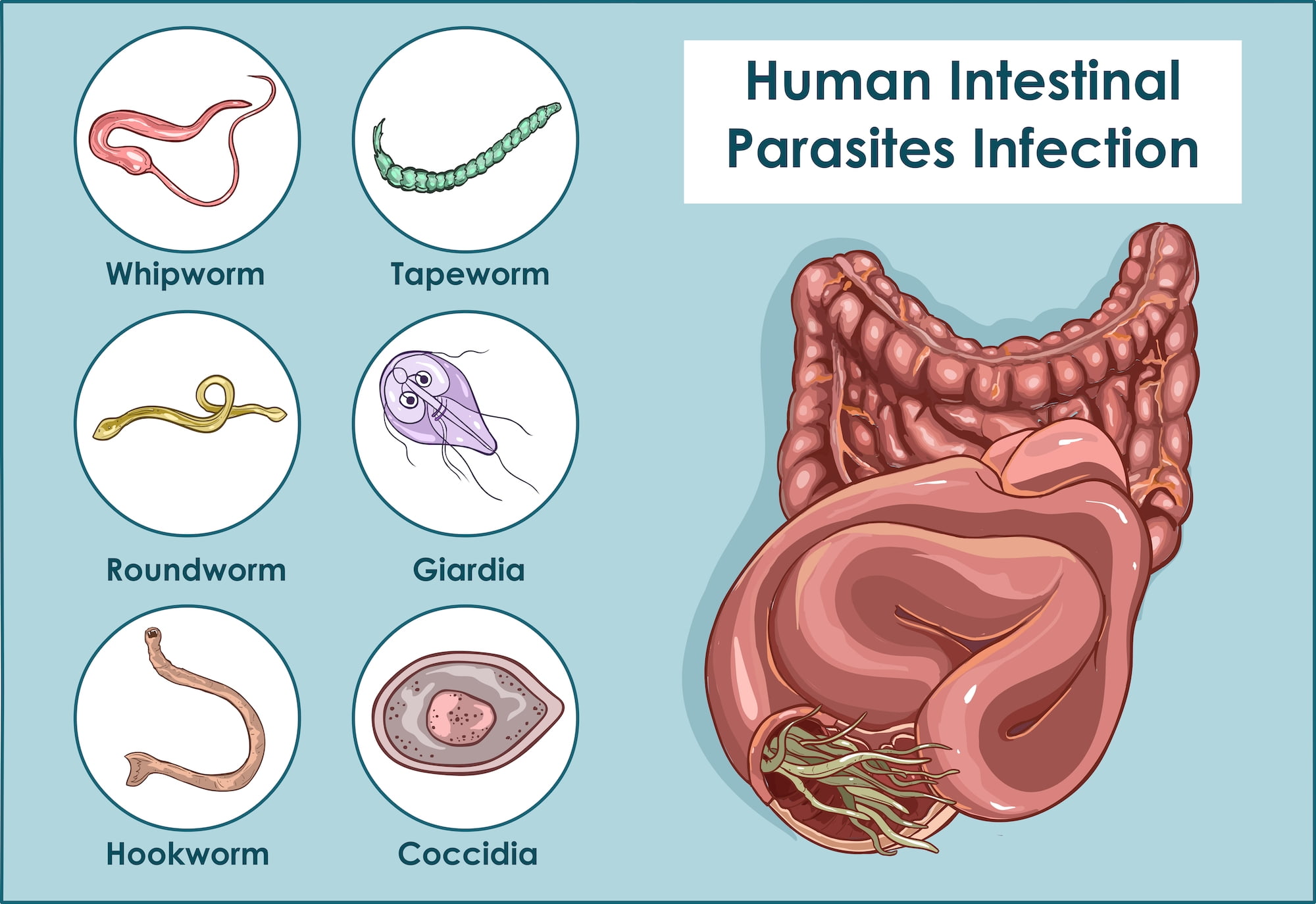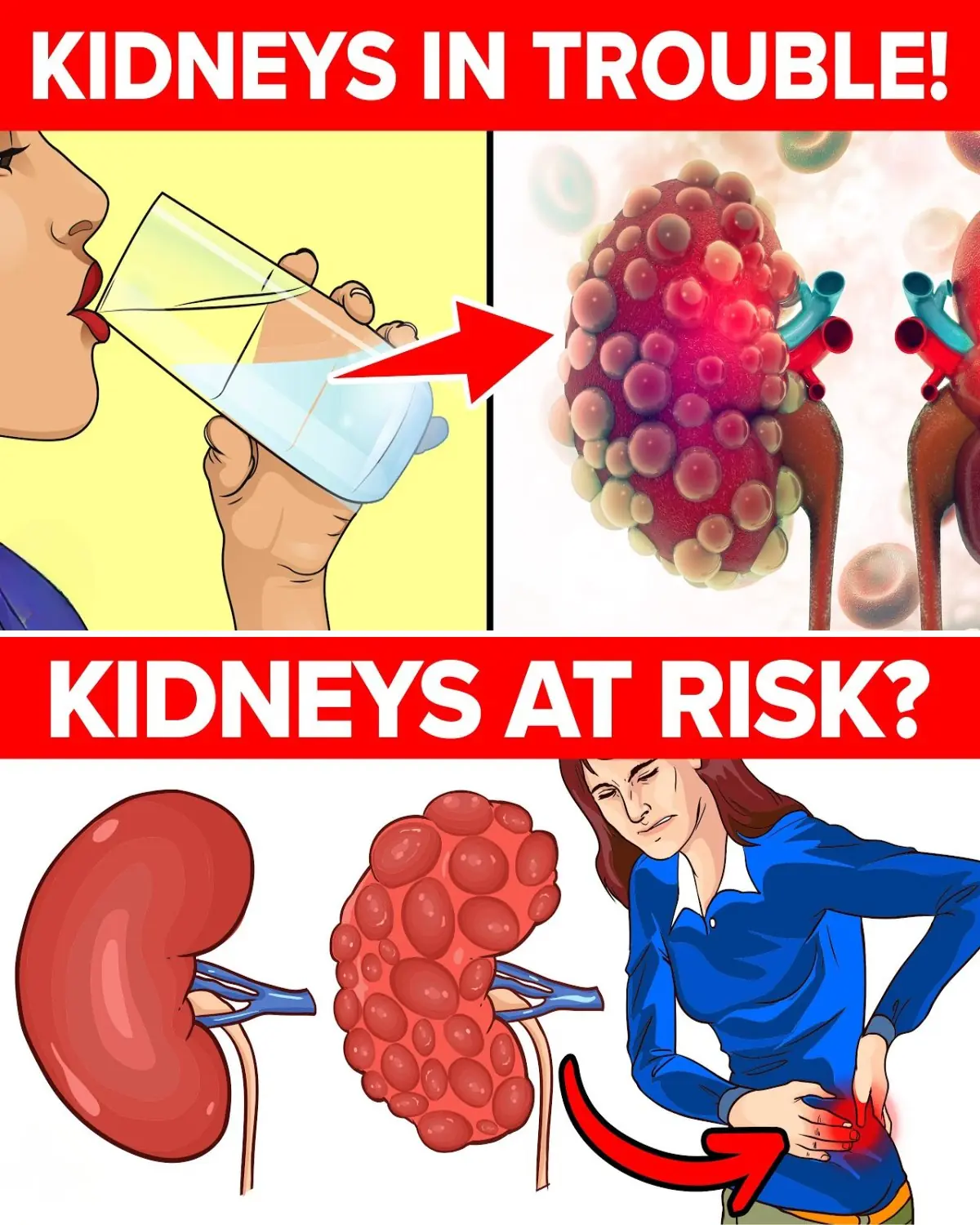
10 Signs You Might Have Parasites
The symptoms of parasitic infections often result from the toxins these organisms release into the human bloodstream. Intestinal parasites are among the most noticeable because of the severe and uncomfortable symptoms they cause. Different types of parasites can lead to a wide range of physical effects. Below are some of the most common signs of a parasitic infection:
1. Digestive Issues
Unexplained constipation, diarrhea, bloating, gas, heartburn, or nausea may signal a parasitic infection. Because intestinal parasites typically settle in your gastrointestinal (GI) tract, they trigger immune responses that lead to various symptoms depending on the organism involved.
Many of these digestive problems are often mistaken for Irritable Bowel Syndrome (IBS). Doctors may not routinely test for parasites because such infections are less common, and standard lab tests might not detect them. More sensitive diagnostic tools, such as GI-MAP, can help identify whether your unusual digestive symptoms are linked to unwanted invaders.
2. Fatigue or Chronic Exhaustion
Parasites place a heavy burden on the body, often causing persistent tiredness, mood swings, depression, headaches, memory issues, or general apathy.
Certain intestinal parasites, such as Giardia, can trigger chronic fatigue syndrome by interfering with nutrient absorption — especially iron and vitamin B12 — leading to fatigue and lack of motivation without any clear cause.
3. Skin Problems
Unexplained rashes, hives, eczema, or redness can also point to parasitic activity. If your skin irritation or itchiness doesn’t improve with typical treatments, parasites might be the underlying reason.
Parasites can stimulate the body to produce Immunoglobulin E (IgE) antibodies, which trigger allergic reactions that manifest as persistent or mysterious skin issues.
4. Muscle and Joint Pain
Some parasites can invade muscle and joint tissue, releasing toxins that cause inflammation and discomfort.
For example, Trichinosis — caused by roundworms from undercooked or raw meat — can result in joint and muscle pain. Persistent soreness that doesn’t improve with normal remedies may indicate a parasitic infection.
5. Anemia
Certain parasites feed on red blood cells or cause intestinal bleeding, leading to iron-deficiency anemia. These blood-feeding organisms deplete iron and protein, leaving the body unable to produce enough red blood cells.
This blood loss can result in weakness, dizziness, and low energy, as your body struggles to maintain its normal functions.
6. Never Feeling Full After Meals
If you constantly feel hungry and unsatisfied even after eating, parasites could be to blame. Some, like tapeworms, consume the nutrients from your food, leaving you perpetually hungry despite regular meals.
Others cause bloating and nausea, reducing your appetite but still disturbing your digestive balance.
7. Itching
Parasitic infections can cause itching — especially when parasites burrow under the skin or lay eggs. Pinworms, for example, often cause itching around the anus.
When the immune system detects these invaders, it releases IgE antibodies, which can lead to allergic reactions such as intense or localized itching.
8. Teeth Grinding (Bruxism)
Grinding your teeth during sleep may be linked to parasites. The toxins they release can affect your nervous system, leading to anxiety, restlessness, and nighttime teeth grinding.
If you wake up with a clenched jaw or notice tooth wear, bruxism caused by parasitic stress could be a factor.
9. Insomnia
Parasites can disrupt your sleep by causing discomfort or because many are more active at night. You may have difficulty falling asleep or wake up frequently without understanding why your sleep pattern has changed.
10. Bloating
Some intestinal parasites, like Giardia, can cause excess gas buildup in the digestive tract, leading to bloating and abdominal distension. Persistent bloating that doesn’t resolve with dietary changes may indicate an infection.
Final Thoughts
The severity and duration of symptoms vary depending on the type of parasite. Complications are more common in older adults and people with weakened immune systems. It’s also possible to carry parasites without showing any symptoms at all.
Healthcare professionals emphasize that individuals respond differently to infections — for instance, some people infected with Ascaris worms may have no noticeable signs. Proper testing and medical consultation are essential for accurate diagnosis and treatment.
News in the same category


If Your Kidneys Are in Danger, Your Body Will Send You These 8 Signals — Don’t Ignore Them

The Surprising Effects of Avocado on Your Heart and Brain

Natural Remedy for Cataracts and Eye Inflammation: Restore Your Vision Naturally

Unlock the Golden Magic of Corn Silk Tea

9 Powerful Home Remedies to Get Rid of Fungal Infection (Daad, Khaj, Khujli) Fast

7 Shocking Health Benefits Of Eating Sweet Potatoes Every Day — According To Science

About 15 Minutes Before a Stroke, the Body Often Sends 4 Clear Warning Signs — Call Your Loved Ones Immediately

Hidden Dangers in Your Mouth: Early Signs of Oral Cancer

The Secret Power Of The Herb That Helps You Age Gracefully

If You See Someone with “Blue Veins,” Tell Them This — It Could Save Their Life

The Secret Power of Two Eggs a Day: Could This Simple Habit Transform Your Health? Buy vitamins and supplements

Man Passed Away After Eating Eggs — Stop Eating Eggs This Way Immediately

8 Foods That Fight Tumors — Eat Them Regularly

Does Eating Bananas Before Bed Have Any Benefits?

The Tongue as a Health Indicator: Meaning of a Whitish Color

Benefits of Boiled Eggs: Nutrition and Healthy Recipes

5 early warning signs of cervical cancer

7 Innocent Mistakes That Get Your Kidneys in Big Trouble
News Post

WHAT HAPPENS WHEN WE TONGUE KISS…See more

Nature’s Secret: 4 Healing Leaves That Support Metabolism, Immunity & Circulation Naturally

Don’t Drink Coconut Water Before You Know These 11 Secrets!

Pumpkin Seed Milk — The Natural Parasite Cleanser

Fast Rice Water Trick for a Brighter Smile

Morning Drink to Revive Your Kidneys Fast

The Onion Recipe That Could Transform Your Blood Sugar, Support Cleaner Arteries, and Protect Your Heart!

Top 4 Fruits That Help Your Kidneys Flush Out Toxins While You Sleep

Ginger, Clove, and Honey: The Natural Trio Your Body Will Thank You For

Heal 15 Years of Joint Pain Naturally with Turmeric and Honey Tea

This Juice Revived My Grandma’s Energy — Say Goodbye to Fatigue and Body Pain with This Natural Recipe

The Benefits of Eating 2 Boiled Eggs Every Morning: Transform Your Health!

If Your Kidneys Are in Danger, Your Body Will Send You These 8 Signals — Don’t Ignore Them

The Surprising Effects of Avocado on Your Heart and Brain

Ways to Get Over a Man Who Didn’t Value You

I’m 66 but Look 36 — My Secret? Aloe Vera & Ginger for Firm, Smooth Skin

How to Make Okra Water to Treat 17 Health Problems Naturally

Banana and Egg Mask to Look Younger Even in Your 80s

Scent Leaf Secrets Unveiled: 10 Surprising Health Benefits of This Miracle Herb
